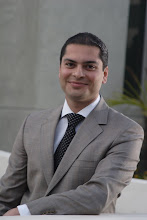There are pros and cons for a weak Dollar. Its effects on exports and consequently the US GDP during these hard economic times are clearly a plus. On the flip side, it can be cause for inflation both within and outside the United States. Internationally speaking, countries with currencies pegged to the US Dollar have the most to lose.
As the USD deteriorates in value such countries lose relative purchasing power of their currencies and their economies can feel inflationary pressures. In recent weeks, however, the Dollar has been showing some signs of recovery, which has brought some relief to Gulf countries. "The strengthening dollar is good for the Gulf region because it will reduce the imported inflation in the region and it also increases the purchasing power of the regional currencies." said Monica Malik, Director of Economic Research, EFG Hermes, a regional investment bank.
The slowdown in Euro economies has been more than anticipated by policy makers and if continued such trends can strengthen the US Dollar even further. Good news for those Americans who were postponing trips to Europe for fear of big dents in their checking accounts.
"Both the dollar weakness and the interest rate cuts have been painful for the GCC countries, but now the worst is over. However, it is in the interest of the regional economies to have greater flexibility in monetary and exchange rate policies to meet the needs of the regional economies," said Malik.
Tuesday, September 16, 2008
Thursday, September 11, 2008
GCC Investment Opportunities must not Be Overlooked
While there is considerable enthusiasm surrounding every move made by rich Middle Eastern sovereign funds, capital movements in the opposite direction must not be overlooked. The Gulf Cooperation Council (GCC) Countries represent one of the fastest growing regions in the world.
While the US economy has stalled, the global economy has expanded at 4% to 5% annually for the past 5 years, according to the National Real Estate Investor. Worldwide, the number of high-net-worth individuals grew 6% in 2007 to more than 10 million. In the same period the number of people with more than $30 million in assets grew more than 8% to over 100,000. According to the World Wealth Report, published by Merrill Lynch and Capgemini, the assets of the wealthy are expected to grow by 7.7% annually to $59 trillion in 2012. Most of this growth is expected to be in rapidly expanding economies like those in the GCC.
As discussed in my previous posts, the regional governments have been very smart in how they spend the wealth generated from increased petroleum revenues. Considerable capital has been invested in critical infrastructure and industry, slowly but surely, transforming the region into a hub for trade, business, tourism, and finance.
The Goldman Sachs Group is one among many of the Western institutions that has been aware of such opportunities. In a recent move, the group launched a new proprietary fund to invest in select assets in the Middle East.
While the US economy has stalled, the global economy has expanded at 4% to 5% annually for the past 5 years, according to the National Real Estate Investor. Worldwide, the number of high-net-worth individuals grew 6% in 2007 to more than 10 million. In the same period the number of people with more than $30 million in assets grew more than 8% to over 100,000. According to the World Wealth Report, published by Merrill Lynch and Capgemini, the assets of the wealthy are expected to grow by 7.7% annually to $59 trillion in 2012. Most of this growth is expected to be in rapidly expanding economies like those in the GCC.
As discussed in my previous posts, the regional governments have been very smart in how they spend the wealth generated from increased petroleum revenues. Considerable capital has been invested in critical infrastructure and industry, slowly but surely, transforming the region into a hub for trade, business, tourism, and finance.
The Goldman Sachs Group is one among many of the Western institutions that has been aware of such opportunities. In a recent move, the group launched a new proprietary fund to invest in select assets in the Middle East.
Labels:
dubai capital,
GCC economic growth,
GCC investment
Thursday, September 4, 2008
Recent Move by a Middle Eastern Sovereign Fund
In early August the Oman Investment Fund, the investment arm of the sultanate of Oman, acquired 50% partnership in Jurys Inns.
Jurrys Inns had been acquired by Quinlan Private, the international private real estate group back in 2007 and since the acquisition, Quinlan Private has expanded the group significantly opening new locations. The recent acquisition by Oman Investment Fund, gives it an equal representation on the Board of Jurrys Inns as Quinlan Private.
State investment funds such as the Oman Investment Fund, are actively seeking international investment opportunities and seek financially attractive deals where the investment can yield superior long-term returns.
Jurrys Inns had been acquired by Quinlan Private, the international private real estate group back in 2007 and since the acquisition, Quinlan Private has expanded the group significantly opening new locations. The recent acquisition by Oman Investment Fund, gives it an equal representation on the Board of Jurrys Inns as Quinlan Private.
State investment funds such as the Oman Investment Fund, are actively seeking international investment opportunities and seek financially attractive deals where the investment can yield superior long-term returns.
Subscribe to:
Comments (Atom)

